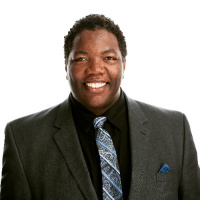 Lansing Criminal Lawyers, Michigan
Lansing Criminal Lawyers, Michigan
Sponsored Law Firm
-
 x
x

Click For More Info:
-
The Williams Law Firm
411 W Lake Lansing Rd Ste C-110 East Lansing, MI 48823» view mapCriminal Defense Law A Defense Lawyer With Proven Results
Knowing the law certainly is a necessary prerequisite but an attorney’s ability to effectively communicate is perhaps his or her paramount importance.
800-945-0701
Sponsored Lawyers
1-10 of 47 matches
Criminal, Traffic
Attorney Richard L. Williams provides legal services for driver’s license restoration, expungement of criminal records, domestic assault, civil infractions, misdemeanors and felonies, including OWI (DUI, DWI) drug possession, and other related issues and offenses. He also provides services for wills, trusts, businesses, and corporations. Richard L. Williams is a member of the State Bar of Michigan, license #P-29583. He has been actively practicing law since his acceptance into the Bar in October 1978. The principal areas of law that he has focused on during his four-plus decades of experience have been trial advocacy and business organizations. Mr. Williams attained Diplomate status with the Court Practice Institute in Chicago, Illinois, in 1978. He has worked at the Michigan Department of Commerce, Corporation and Securities Division, Franchise Registration for two years prior to admittance into the State Bar of Michigan. During that time, he was also the chief legal clerk for Circuit Court Judge Paul Mahinske in Howell, Michigan. He has also taught upper-division level contracts and business organizations at Michigan State University as well as Lansing Community College and Thomas M. Cooley Law School. In September 2021, he began his 44th year as a lawyer in private practice. He has represented more than 7,000 individuals and business entities in matters ranging from divorce, real estate, wills, corporations, and personal injury/wrongful death to defending those who are criminally accused. Today, he focuses on driver’s license restoration, expungement of criminal records, criminal defense, and setting up new businesses via corporate form or otherwise. Personal & Educational History Attorney Williams was born in the Bay Ridge section of Brooklyn, New York in 1947. His father owned his own newspaper and was an investigative journalist by trade; his mother was a hospital dietitian with a Master’s in food chemistry. He attended high school in Thompson, Connecticut at Marianapolis Preparatory School and graduated with a classical and a scientific diploma. Thereafter, he attended Marquette University in Milwaukee, Wisconsin and received a BA degree with majors in history and chemistry, minors in economics. He attended and graduated from Thomas Cooley Law School in May 1978. He’s married with seven children, which include six sons and one daughter. His outside interests include gardening, wilderness camping, playing and teaching music, cooking, writing, and competitive league bowling during the winter months.
(more)Criminal, Social Security, Divorce
Bobby Ficklin is a practicing lawyer in the state of Michigan.
(more)


 Richard L. Williams East Lansing, MI
Richard L. Williams East Lansing, MI Practice AreasExpertise
Practice AreasExpertise


